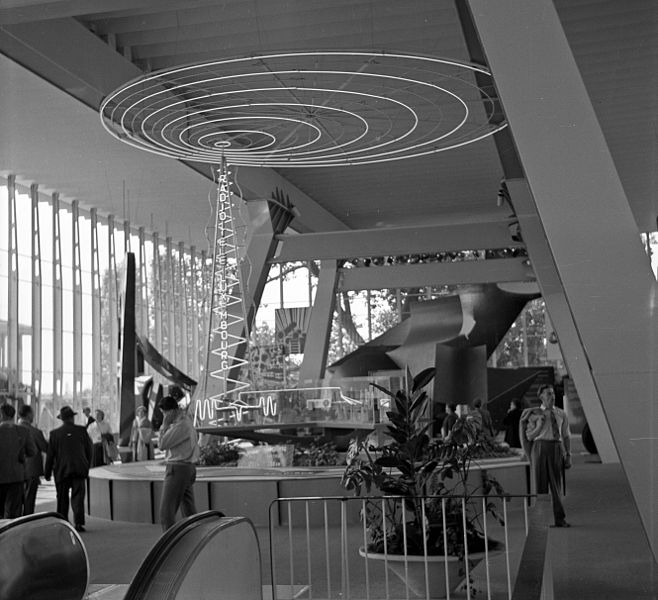By Gordon R. Thompson
As a regional businessman and a fledgling band manager, Brian Epstein presumed that the Beatles’ record company (EMI’s Parlophone) and Lennon and McCartney’s publisher (Ardmore and Beechwood) would support the record. This presumption would prove false, however, and Epstein would need to draw on all of the resources he could spare if he were to make the disc a success. He began with what he knew from the retail end of the industry and commenced rallying Liverpudlians to write letters to both Radio Luxembourg and the BBC asking them to play “Love Me Do.”
Just as the stations XERF (in Ciudad Acuña, Mexico) and CKLW (in Windsor, Ontario, Canada) were able to broadcast deep into the United States with transmitters many times more powerful than FCC-regulated American stations, a station in the Grand Duchy of Luxembourg carpeted most of Western Europe. Perhaps surprisingly, Radio Luxembourg (broadcast in the Medium Wave band) was British-owned and its English-language service became a primary outlet for UK businesses whose advertising the BBC declined. (The BBC refused to broadcast anything that suggested product promotion.) Radio Luxembourg suffered its sometimes-scratchy signal; but British listeners tuned in every night to embrace the pop music that Aunty Beeb would not play.
British corporations like EMI and London music publishers like Essex Music directly controlled much of the station’s airtime by buying broadcast blocks during which they played pre-recorded programs. Indeed, on Monday 8 October 1962, the Beatles taped an interview at EMI’s headquarters in London, which Radio Luxembourg broadcast along with their recording of “Love Me Do” on Friday 12 October. (George Harrison later recalled the thrill of first hearing himself on that radio broadcast.) The Liverpool letters solicited by Epstein that arrived in Luxembourg eventually arrived at EMI in London where the manager hoped they would catch corporate attention and result in better domestic support for the Beatles and their releases.
Tony Barrow, whom Epstein had originally contacted at Decca Records in his quest to get the Beatles a recording contract, began work for NEMS (North End Music Stores) as the Beatles’ publicist. (He could hardly have imagined how his job description would evolve from soliciting the press’s attention to holding them at arm’s length.) As a reviewer and a liner-note writer, Barrow had often worked from press materials prepared by agents and managers. These releases could vary significantly in kind and quality, but among them, Barrow thought that the press kits from Leslie Perrin’s office (which had represented London’s infamous Raymond’s Revue Bar, among others) were particularly effective. Notably, a color-coded press kit walked readers through a client’s story, which made a reviewer’s tasks easier. Barrow appropriated this format in his preparations for promoting the Beatles.
The role of the press agent involved finding the right people to contact and, for that, Barrow needed names, addresses, and phone numbers. Coincidentally, he knew someone who had recently left Decca’s press office. The Beatles’ new agent presumed that the individual would have taken a copy of the company’s mailing list and, after a casual meal, they reached a mutually beneficial agreement. Brian Epstein’s new part-time press manager walked away with a cache of contacts.
Barrow began by introducing the Beatles to London’s music press, escorting the Liverpudlians from the Denmark Street offices of New Musical Express to Fleet Street’s Melody Maker. They were willing to go almost anywhere to meet anyone with access to print or broadcast media. For example, on 9 October 1962 (the day after taping the Radio Luxembourg program), they visited the offices of Record Mirror so that writers there could see how different they were from other entertainers and to hopefully experience some of the charm that had swayed George Martin.
The mixed results both encouraged the band and its manager, and disappointed them. Alan Smith, writing in the New Musical Express (26 October 1962), briefly introduced the band, highlighting how Lennon and McCartney had written their “hit.” However, if you were the Beatles searching the papers for even the briefest mention (which they did weekly), you found little.
Brian Epstein in a 1967 interview would justifiably take credit for some of the band’s early success, citing his diligence and perseverance. The slow climb of “Love Me Do” up the charts would be his vindication. By December 1962, despite setbacks, the single increased sales and nudged into the top twenty on the most respected (if selectively read) chart. They were poised for something and they were sure ‘twas for success.
Gordon Thompson is Professor of Music at Skidmore College. His book, Please Please Me: Sixties British Pop, Inside Out, offers an insider’s view of the British pop-music recording industry. Check out Gordon Thompson’s posts on The Beatles and other music here.
Subscribe to the OUPblog via email or RSS.
Subscribe to only music articles on the OUPblog via email or RSS.
The post Selling the Beatles, 1962 appeared first on OUPblog.



